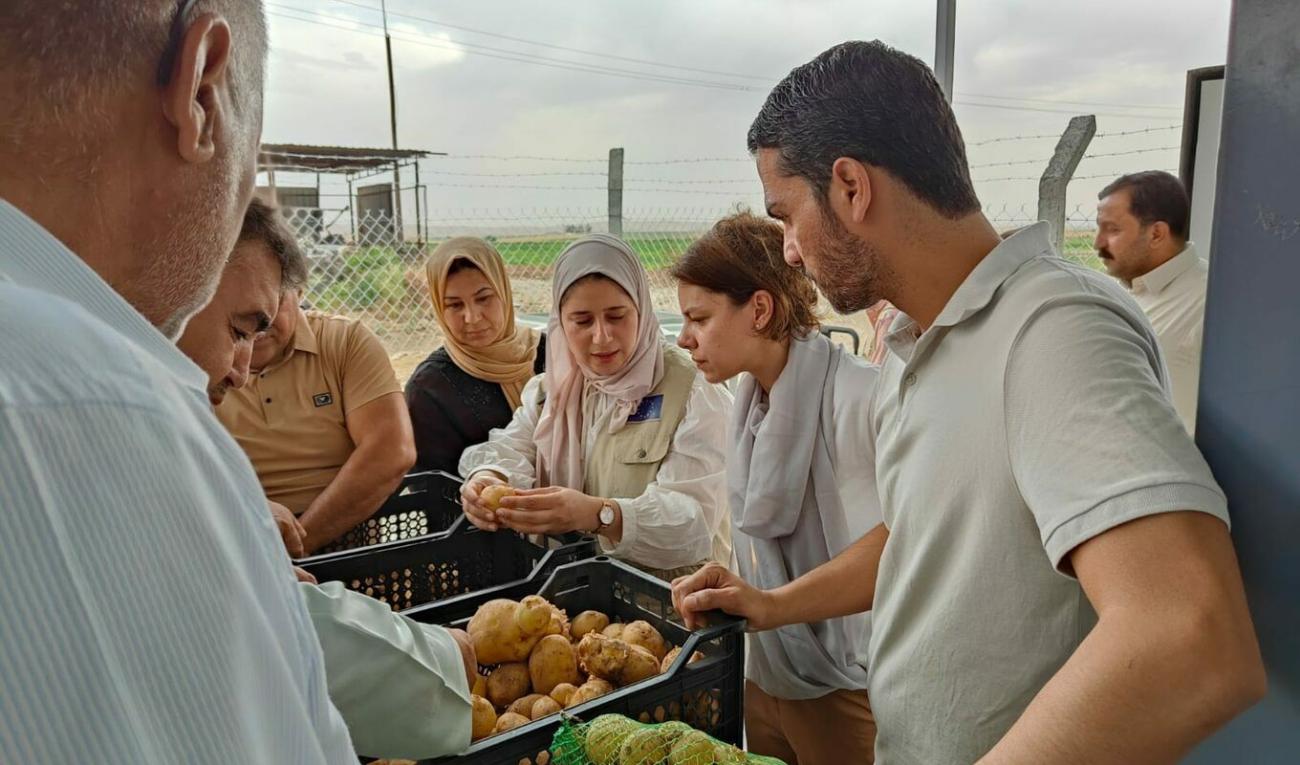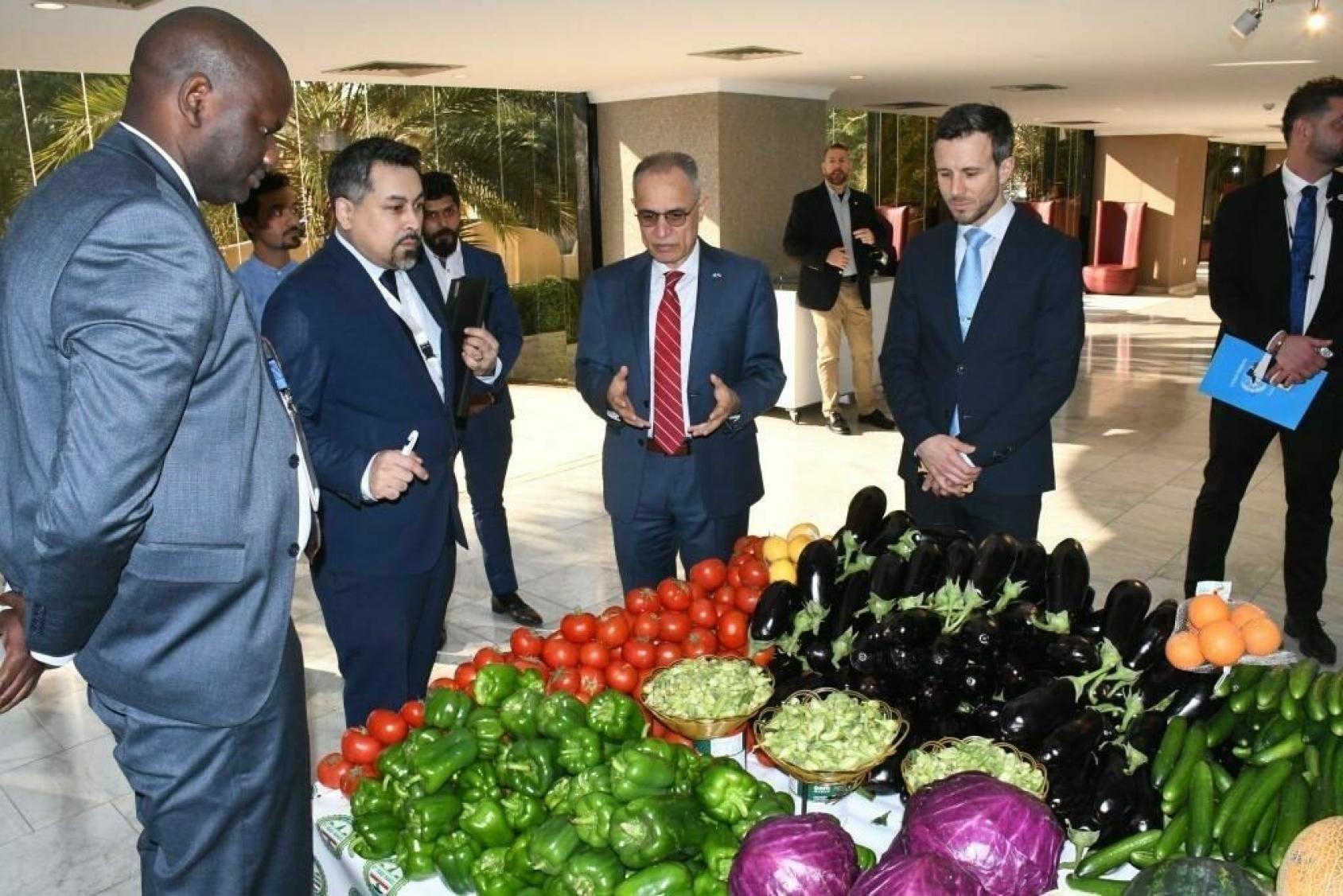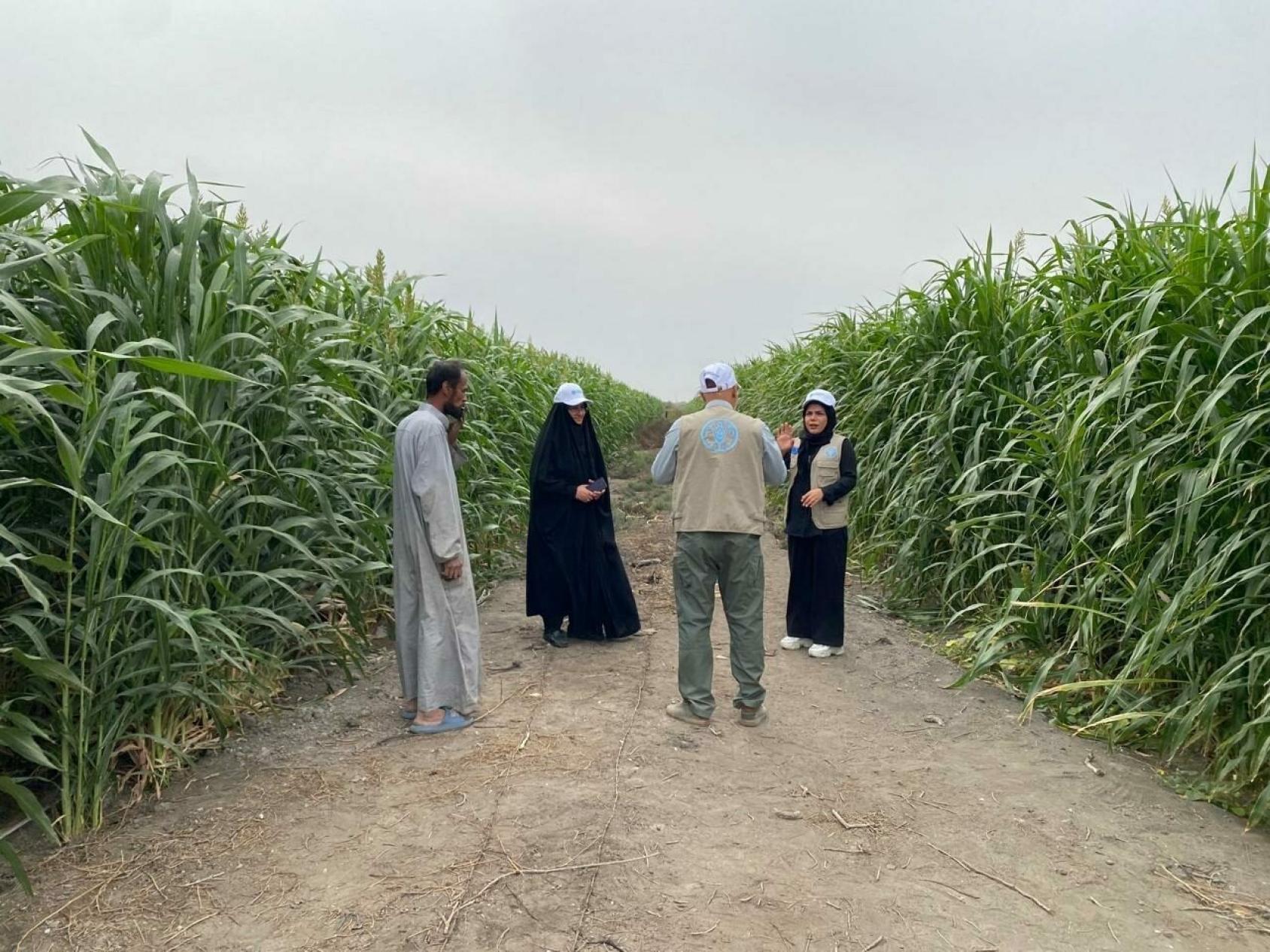Building a sustainable, efficient, and climate-resilient agrifood system in Iraq

When I arrived in Iraq more than two years ago, I was struck by the urgency of the challenges facing this beautiful country. But as a father of three, this mission resonates deeply on a personal level. Every day, I think about the world our children will inherit, and it makes me reflect on the millions of children in Iraq who are facing unimaginable hardships—challenges they did not choose: conflict, hunger, and the worsening impact of climate change.
My work here is driven by the same responsibility I feel for my own family. It’s about securing a brighter, more hopeful future for Iraq’s children, who deserve nothing less than a safe and prosperous tomorrow.
Iraq is ranked as the fifth most vulnerable country in the world to water and food shortages and extreme temperatures.
Additionally, it is ranked 61st out of 163 countries on UNICEF’s Children’s Climate Risk Index. By 2050, water availability is expected to drop by 20 per cent, which could lead to the loss of nearly one-third of Iraq's irrigated land.
This isn't just a future problem - it’s happening now, with 54 per cent of the population are considered food vulnerable. Desertification, droughts, and soil salinization are already disrupting supply chains, increasing costs and worsening poverty across the country.
We are at a critical moment, and investing in climate-smart agriculture and water management has become more urgent than ever. Ensuring Iraq’s food supply and protecting its children from a future of scarcity is essential for economic stability and the well-being of future generations.

Empowering agribusiness and small businesses for resilience
Agriculture and agri-food value chains are crucial to Iraq’s economy, food security, and livelihoods, particularly among displaced and vulnerable populations. However, Iraq's heavy reliance on oil has resulted in high carbon footprint, making it extremely vulnerable to specific climate-related disasters, such as droughts, desertification, and sandstorms.
Small-scale farmers are particularly at risk, grappling with declining soil quality, increased post-harvest losses, and severe water shortages, all of which are crippling their productivity. Projections indicate that Iraq may lose 20 per cent of its freshwater resources by 2050, putting crop yields and rural livelihoods at severe risk. I’ve visited these communities and listened to their stories and seen firsthand — the pain, and struggle of families trying to survive in the face of these growing challenges.
But despite these difficulties, I believe there is hope. Over 65 per cent of farmers and 40 per cent of agribusinesses in Iraq are working to mitigate environmental risks, even though many lack the resources and technology needed for effective adaptation, their determination and resilience are inspiring.
Small businesses are critical in driving sustainable agricultural development and building resilience. However, they too are grappling with rising operational costs, disrupted supply chains, and diminished productivity. Inadequate infrastructure, especially in cold storage and transportation —adds to their burden, leading to greater post-harvest losses and reduced product quality, making it increasingly difficult for these businesses to compete and grow.

A call to action: Time to act
Addressing the climate-food nexus in Iraq requires collective action from governments, donors, the international community, and local communities.
First, the Government of Iraq should prioritize the swift enactment of the Public-Private Partnerships law, incorporating incentives such as tax relief, reduced tariffs, and smart subsidies for small businesses including agribusiness.
These initiatives will foster public-private partnerships and attract investment in climate-resilient infrastructure, including renewable energy projects and sustainable water management systems, essential for scaling sustainable practices in agriculture, enhancing small business access to both domestic and international markets, bolstering Iraq’s food security and driving economic growth.
Second, the international community should provide technical assistance to the government and civil society in developing and adapting climate-related policies that prioritize sustainable resource management in forestry, agriculture, and renewable energy.
This support will facilitate the integration of climate adaptation into policies that align with Iraq’s Nationally Determined Contributions and Green Growth Strategy.
Third, the international community must step up its support. Iraq cannot face this crisis alone. Donors must provide the funding and technical assistance needed to help farmers and small businesses adapt to the changing climate. This support should focus on equipping farmers with the technology and knowledge they need to implement advanced agricultural practices, conserve water, and protect natural resources.
Finally, local communities should be empowered to take ownership of climate action. By adopting sustainable farming techniques, conserving water, and protecting natural resources, they can play a critical role in securing Iraq’s agricultural future.
Their resilience and innovation must be supported, not only through adequate policies and financial assistance but also through capacity-building initiatives, access to training programs, and the development of local networks that facilitate knowledge sharing and collaboration among farmers and stakeholders.
This blog was written by Deputy Special Representative to the United Nations Secretary General, Resident and Humanitarian Coordinator for Iraq, Ghulam Isaczai. To learn more about the UN Country Team’s efforts to support Iraq's food security read the full text here.













